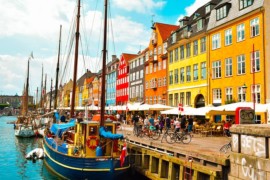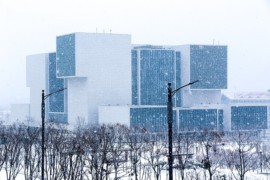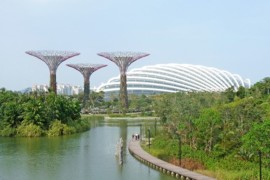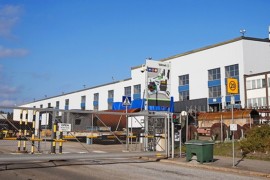Frédéric Turin is Deputy Director General of Coriance, one of the latest district heating operating companies to enter the market. In his opinion, heating networks are the best way to ensure the competitiveness of renewable energies.
Can you introduce your company?
Coriance is a new company – it was created fifteen years ago – and which has experienced uninterrupted growth since its inception. This growth has even accelerated in recent years. Coriance today employs approximately 300 employees in France in its two businesses. The first is its historical and principal activity: the operation and management of heating networks contracts. The second activity, concerning energy efficiency services, has developed more recently.
What are the specifics of Coriance?
Compared to our main competitors, the big difference is that we are a human-sized company. Therefore, we have an extremely close and intimate relationship with our customers. We are also distinguished by a total independence vis-à-vis the major energy groups. Moreover, we really are a company specialized in heating networks. It is not part of our business; it accounts for over 90% of our business. In this context, we favour the use of renewable energy: we use the greenest energy park in our profession with more than 60% renewable energy in our energy mix, plus 20% produced from cogeneration.
What are your most notable projects?
For the Grand Dijon, we converted and developed the district heating network in the district of the Fountain of Ouche and the town of Chenôve to make it one of the largest networks of Burgundy for biomass valorisation. We are also making progress in the conversion to a biomass heating network in Mont-Saint-Aignan (Seine-Maritime). Regarding cooling networks, we are implementing a rather original operation in Toulouse: from a household waste incineration plant, we transform heat into cold air to cool buildings in the new district of the Cartoucherie .
Are cooling networks sufficiently developed in France?
Clearly not, they are underutilized. It is time to reflect on their development because they offer, just like heating networks, the possibility of sharing the means of production. This has many advantages that make it more accessible to the implementation of renewable energy. We believe they have great potential which ought to be explored with the help of innovative techniques such as the one we set up in Toulouse.
What are the main obstacles to the development of heat networks?
The main one is short termism. The energy and economic situation of the moment is that the price of fossil fuels is exceptionally low. The temptation is to think in light of this situation. However, we must continue to work on a long term solution and in this longer time scale renewable energies can and should be economically efficient. I am convinced that heating networks are the best way to move towards this performance.
Heating networks are the way of the future?
In any case, they have two major advantages. The first is that in the long term competitiveness of the REC that I just mentioned. The other is that it is a multi-energy system. They are flexible, because you can, at any time, change and use the greenest and most profitable energy available. If you add the sharing of costs and resources to this system, ultimately you get a guarantee of price stability. It is an insurance policy that fossil fuels are not able to provide since they are volatile, subject to many economic uncertainties beyond the local setting. From this point of view, yes, heating networks are the future of heating.






